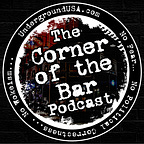The Catholic Church witnessed a historic moment with the election of Robert Francis Cardinal Prevost as Pope Leo XIV, marking the first time an American has ascended to the papacy. This seismic shift in Vatican leadership, following the death of Pope Francis, not only reflects the global reach of Catholicism but also signals a potential realignment in the Church’s ideological and political priorities. Pope Leo XIV’s background, his choice of papal name, and the broader implications of his elevation—particularly in relation to the United States’ political landscape under the Trump administration—offer a rich tapestry for understanding the future trajectory of the Church.
Born in Dalton, Illinois—a south suburb of Chicago, Robert Prevost’s journey to the papacy traveled through Villanova University and is rooted in a deep commitment to missionary work and ecclesiastical leadership. A member of the Augustinian order, Prevost spent significant portions of his career in Peru, serving as a missionary and later as the Bishop of Chiclayo from 1998 to 2014. His work in Latin America focused on addressing poverty, education, and community development, earning him a reputation for humility and pastoral care.
In 2014, Pope Francis appointed him Bishop of Chimbote, and by 2019, Prevost was elevated to Archbishop of Ayacucho, a role that placed him at the forefront of addressing social inequalities in one of Peru’s most impoverished regions.
In 2023, Prevost’s career took a significant turn when Pope Francis named him Prefect of the Dicastery for Bishops, a powerful Vatican position responsible for overseeing the selection of bishops worldwide. This role positioned Prevost as a key figure in shaping the Church’s global hierarchy, aligning him closely with Francis’s vision of a more inclusive and pastoral Church. His dual American-Peruvian citizenship and fluency in Spanish further enhanced his ability to bridge the Global North and South, making him a compelling candidate for the papacy.
Prevost’s selection of the name Leo XIV is laden with historical and symbolic significance. The last pope to bear the name, Leo XIII (1878–1903), is renowned for his encyclical Rerum Novarum (1891), which laid the foundation for modern Catholic social teaching. Leo XIII defended private property, rejected socialism, and championed workers’ rights, advocating for a balanced approach to economic justice that avoided the extremes of unbridled mercantilism and collectivism. By choosing this name, Pope Leo XIV signals an intent to engage with contemporary social and economic challenges while grounding his papacy in the Church’s traditional teachings.
However, Leo XIV’s choice also suggests a divergence from the immediate legacy of Pope Francis. While Francis emphasized environmental stewardship, inclusivity, and critical critiques of global capitalism—often aligning with neo-Marxist and globalist causes—Leo XIV appears poised to prioritize doctrinal clarity and the Church’s role in fostering individual moral responsibility. Posts across social media describe Leo XIV as a “close confidant of Francis,” yet his selection of a name associated with Leo XIII hints at a return to a more structured engagement with modernity, emphasizing personal freedom and subsidiarity over systemic critiques of economic structures.
Pope Francis, who died in April 2025, transformed the Church’s public image through his emphasis on mercy, outreach to marginalized groups, and a decentralized, synodal approach to governance. His encyclical Laudato Si’ (2015) framed environmental issues as moral imperatives, while his critiques of “trickle-down economics” and the “globalization of indifference” resonated with progressive audiences, alienating some conservative Catholics, particularly in the United States. Francis’s openness to revising Church teachings sparked debates about doctrinal flexibility versus orthodoxy.
In contrast, Leo XIV’s background suggests a more measured approach. His missionary work in Peru focused on practical aid and evangelization, reflecting a commitment to traditional Catholic values of charity and personal conversion. While Francis often spoke in broad, systemic terms—condemning economic models as “structurally perverse”—Leo XIV appears to lean toward Leo XIII’s framework, which upheld the dignity of the individual and the family as the bedrock of society. This could very well manifest in a renewed emphasis on subsidiarity, where local communities and individuals take precedence over centralized interventions, aligning with a rejection of socialist-leaning globalism.
Moreover, Leo XIV’s American roots and his time in Peru equip him to navigate the Church’s role in a polarized world. Unlike Francis, who faced criticism from American conservatives for his socialist tendencies, Leo XIV, it appears, seeks to bridge divides by emphasizing universal Catholic principles—such as the sanctity of life and the importance of family—while avoiding the culture wars in which Francis often entangled himself.
The election of an American pope carries profound geopolitical implications, particularly in the context of the Trump administration’s return to power in 2025. The Trump administration’s platform, rooted in constitutionalism, individual liberty, and skepticism of globalist frameworks, resonates with a segment of American Catholics who felt marginalized under Francis’s papacy. The selection of Leo XIV, a figure with deep ties to the United States, can be interpreted as a tacit endorsement of these values within the Vatican.
Leo XIII’s Rerum Novarum explicitly rejected socialism, warning against ideologies that “rob the lawful possessor” and reduce individuals to “a molecule within the social organism.” Leo XIV’s alignment with this legacy suggests a potential criticism of globalist policies that prioritize supranational systems over national sovereignty and personal freedom. His elevation may very well reflect the College of Cardinals’ recognition of the need to engage with the United States—a global superpower and a bastion of Catholic conservatism—as a counterweight to secular and socialist trends in Europe and beyond.
Furthermore, Leo XIV’s missionary experience in Latin America positions him to address immigration and economic inequality, issues central to both the Trump administration and the Church. Unlike Francis, who was negatively critical of Trump’s immigration policies, Leo XIV may adopt a more diplomatic tone, emphasizing the Church’s role in fostering dialogue and supporting local solutions. This approach aligns with the Trump administration’s focus on national sovereignty and community-based governance, potentially strengthening ties between the Vatican and Washington.
The elevation of Pope Leo XIV marks a pivotal moment for the Catholic Church, blending the global perspective of a missionary with the intellectual legacy of Leo XIII. While building on Pope Francis’s pastoral outreach, Leo XIV’s papacy promises a return to traditional Catholic principles, emphasizing individual dignity, subsidiarity, and doctrinal clarity. His American background and the choice of the name Leo signal a strategic alignment with values of constitutionalism and freedom, resonating with the Trump administration’s rejection of socialist globalism.
As the first American pope, Leo XIV stands at the crossroads of faith and geopolitics, poised to shape the Church’s role in a rapidly changing world. Until and unless I am led to feel otherwise, it is my hope of hopes that Pope Leo XIV will be a reformative change agent for the Catholic Church, much like Donald Trump is for the United States.
Vivat Papa!
Then, when we return, our segment on America’s Third Watch, broadcast nationally from our flagship station WGUL AM860 & FM93.7 in Tampa, Florida.
In Closing…
Remember, politics, policies, the headlines swirling around us—it’s more than just noise. It’s the stuff shaping our lives, our communities, and our future. So, here’s your call to action: dive in. Skip the clickbait, question the spin, and chase the truth. Staying informed isn’t just about knowing what’s up—it’s about holding those in power accountable, and we have the power to do that.
But don’t stop there. Take what you learn and talk about it; with your family, your friends, even that neighbor you just wave to. Share your thoughts, not to argue or provoke, but to connect. When we open up and really listen, we find out we’ve got more in common than we’re led to believe. That’s the secret the folks in Washington don’t want us to know. They thrive on dividing us, but when we come together, when we find that common ground, we’re unstoppable.
So, keep digging, keep talking, and be the one who builds bridges, not walls. Together, we’re not just voters—we’re neighbors, allies, and Americans united for real change, rooted in the values this country was built on. Stay curious, and start those conversations!


















